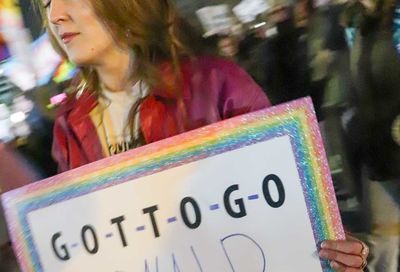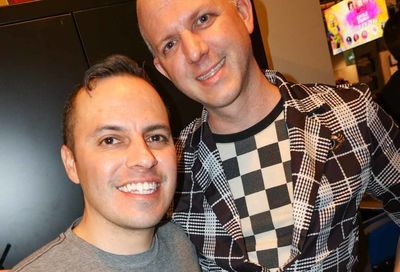Society's Integrated Steps
An iconic anniversary prompts a look at what has changed and what has not
It’s a relic from America’s past: poor, lonely Mayella Ewell, illiterate and abused by her father, invents a chore to lure a handsome black man into her house, with tragic results for him. That’s To Kill a Mockingbird, the 1962 movie honored by our first black president last week for its fictional protagonist, a small-town lawyer who stands for justice by defending a hopeless case.
In the story’s setting of 1935 Alabama, even the most contemptible white person held a social rank above a “respectable Negro” like Tom Robinson. The day Mayella kisses Tom, as he later testifies in court, “She says she never kissed a grown man before an’ she might as well kiss a n—–. She says what her papa do to her don’t count.” (This was cleaned up a bit in the movie.) She orders him, “Kiss me back,” as if it were just another chore.
The all-white-male juries of the Depression-era South were never going to take a black man’s side against any white person’s; but crafty Atticus Finch, defending Tom against a false rape charge, exposed Bob Ewell (Mayella’s father) before all of Maycomb. Ewell sought revenge by attacking Finch’s children.
By 1962, the nation had seen lunch counter sit-ins, Freedom Riders and the Montgomery Bus Boycott. Black Americans were rejecting segregated balconies like the one Jem and Scout Finch scandalously sat in with the colored folk for Tom Robinson’s trial. They were not bowled over by the children’s discovery, in Harper Lee’s novel, that their maid, Calpurnia, had a life and family of her own.
Gregory Peck as Atticus powerfully embodied white America’s conscience; but African-Americans were less and less interested in playing supporting roles in their own story. Eight years earlier, Thurgood Marshall and the NAACP Legal Defense Fund had won Brown v. Board of Education in the U.S. Supreme Court.
Fifty years after Mockingbird‘s release, President Obama screened the film in the White House and introduced it for USA Network at a time when the Trayvon Martin case has brought home the truth of the NAACP motto, “Much has changed, much has not.” A recent film about the segregated South, The Help, still has the obligatory white intermediary, but she plays a supporting role to the black protagonists.
Support Metro Weekly’s Journalism
These are challenging times for news organizations. And yet it’s crucial we stay active and provide vital resources and information to both our local readers and the world. So won’t you please take a moment and consider supporting Metro Weekly with a membership? For as little as $5 a month, you can help ensure Metro Weekly magazine and MetroWeekly.com remain free, viable resources as we provide the best, most diverse, culturally-resonant LGBTQ coverage in both the D.C. region and around the world. Memberships come with exclusive perks and discounts, your own personal digital delivery of each week’s magazine (and an archive), access to our Member's Lounge when it launches this fall, and exclusive members-only items like Metro Weekly Membership Mugs and Tote Bags! Check out all our membership levels here and please join us today!




















